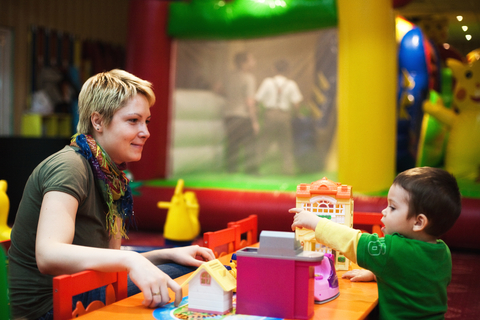What is Play Therapy and Why Does it Work?
Play therapy is a structured, theoretically based approach to therapy that builds on the normal communicative and learning processes of children. The curative powers inherent in play are used in many ways. Therapists strategically utilize play therapy to help children express what is troubling them when they do not have the verbal language to express their thoughts and feelings. In play therapy, toys are like the child’s words and play is the child’s language. Play therapy is a well established discipline based upon a number of psychological theories. Research, both qualitative and quantitative shows that it is highly effective in many cases. Recent research by PTUK, an organization affiliated to Play Therapy International, suggests that 71% of the children referred to play therapy will show a positive change.
Play Therapy Can:
• Help children learn more adaptive behaviors.
• Provides a corrective emotional experience necessary for healing
• Promote cognitive development
• Provide insight about and resolution of inner conflicts or dysfunctional thinking in the child
• Heal from trauma, loss, and/or grief experiences

Who Comes to Play Therapy?
Children are referred for play therapy to resolve their problems which can include behavioral problems such as acting out at school or in the home, emotional difficulties such as depression, anxiety, or OCD, or poor social skills. Children also are referred to come in to work through family issues such as divorce, death, loss and abandonment issues.
Why Play in Therapy?
Play is a fun, enjoyable activity that is the natural way in which children learn about and explore the world around them. It elevates our spirits and brightens our outlook on life. Play Therapy utilizes this natural ability of children and uses developmentally appropriate techniques to expand self-expression, self-knowledge, self-actualization and self-efficacy. Play relieves feelings of stress and boredom, connects us to people in a positive way, stimulates creative thinking and exploration, regulates our emotions, and boosts our ego. In addition, play allows us to practice skills and roles needed for survival. Researchers now have evidence that learning and development are best fostered through play.
How does play therapy work?
A safe, confidential and caring environment is created between the therapist and child, which allows the child to play with as few limits as possible but as many as necessary (for physical and emotional safety). This allows healing to occur on many levels. Play and creativity operate on impulses from outside our awareness – the unconscious. Play Therapy provides a safe psychological distance from their problems and allows expression of thoughts and feelings appropriate to the child’s development. The therapist may reflect back to the child observations of what has happened during the session if this is felt to be appropriate. Above all the child is given “Special Time” where they are the focus of attention and where they can begin to learn how to feel and express feelings in a healthy manner. The child is given strategies to cope with difficulties they face in life and which they themselves cannot change. It provides a more positive view of their future life.
Play therapy differs from regular play in that the therapist helps children to address and resolve their own problems. Play therapy builds on the natural way that children learn about themselves and their relationships in the world around them. Through play therapy, children learn to:
- communicate with others
- express feelings
- modify behavior
- develop problem-solving skills
- learn a variety of ways of relating to others.